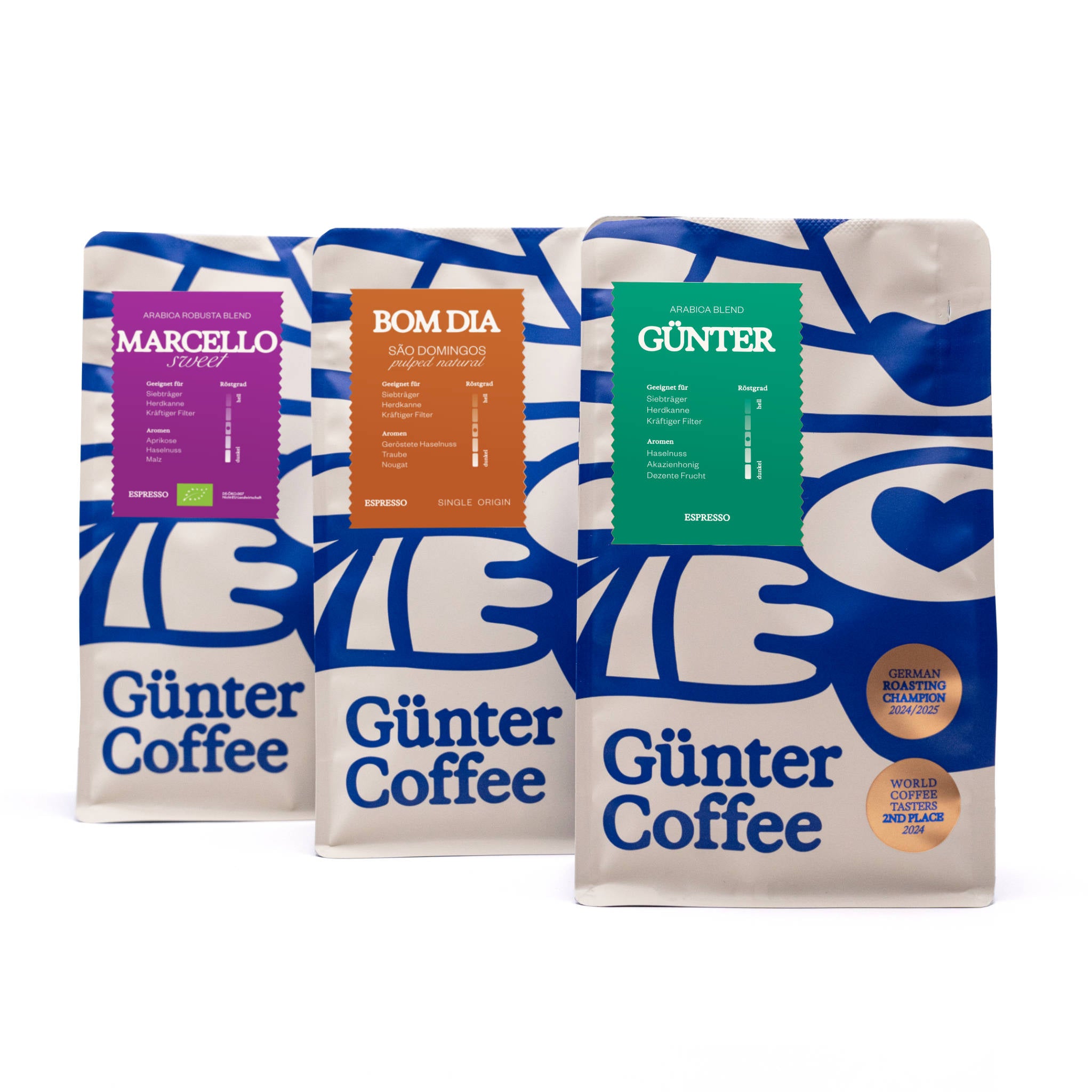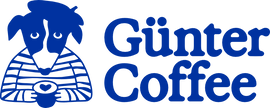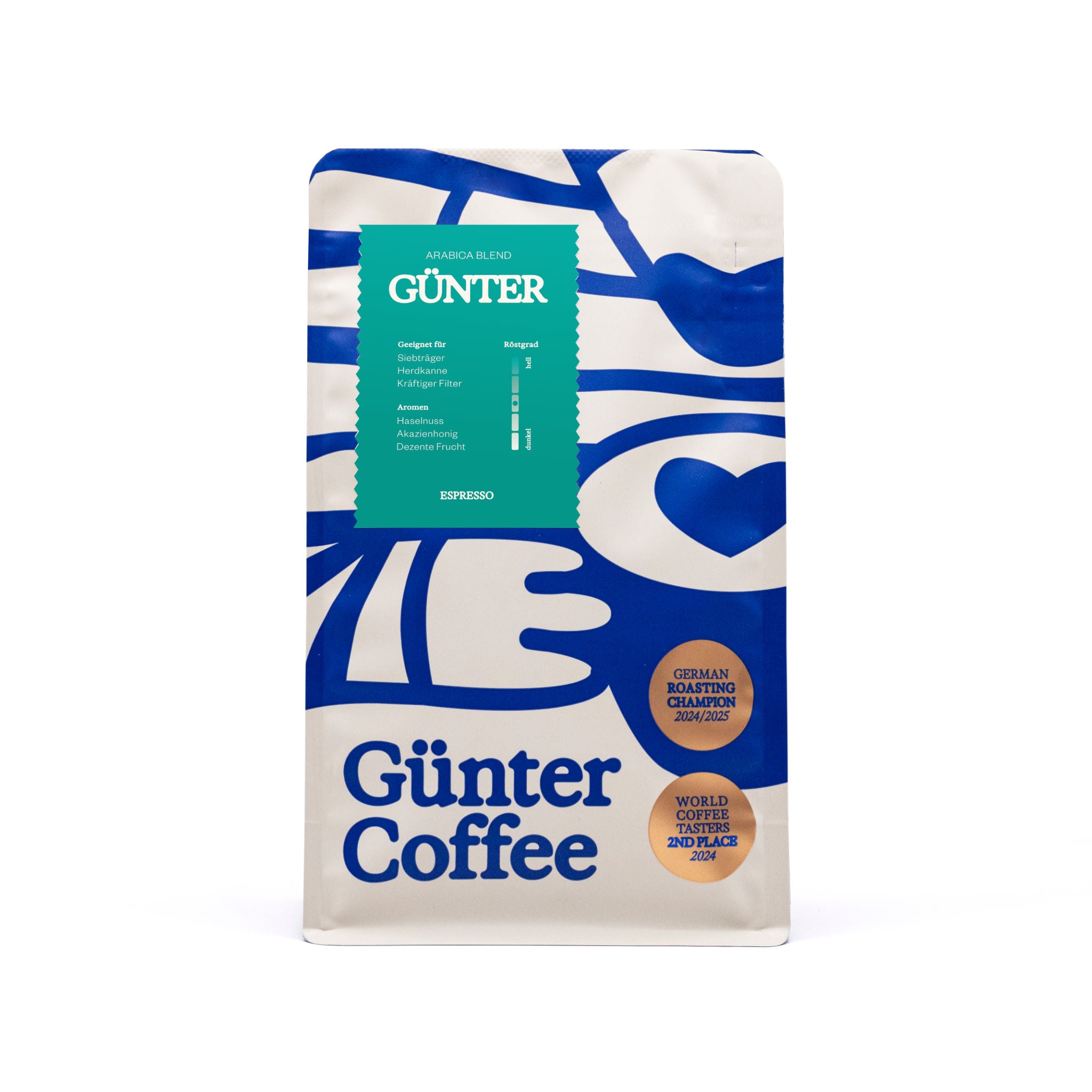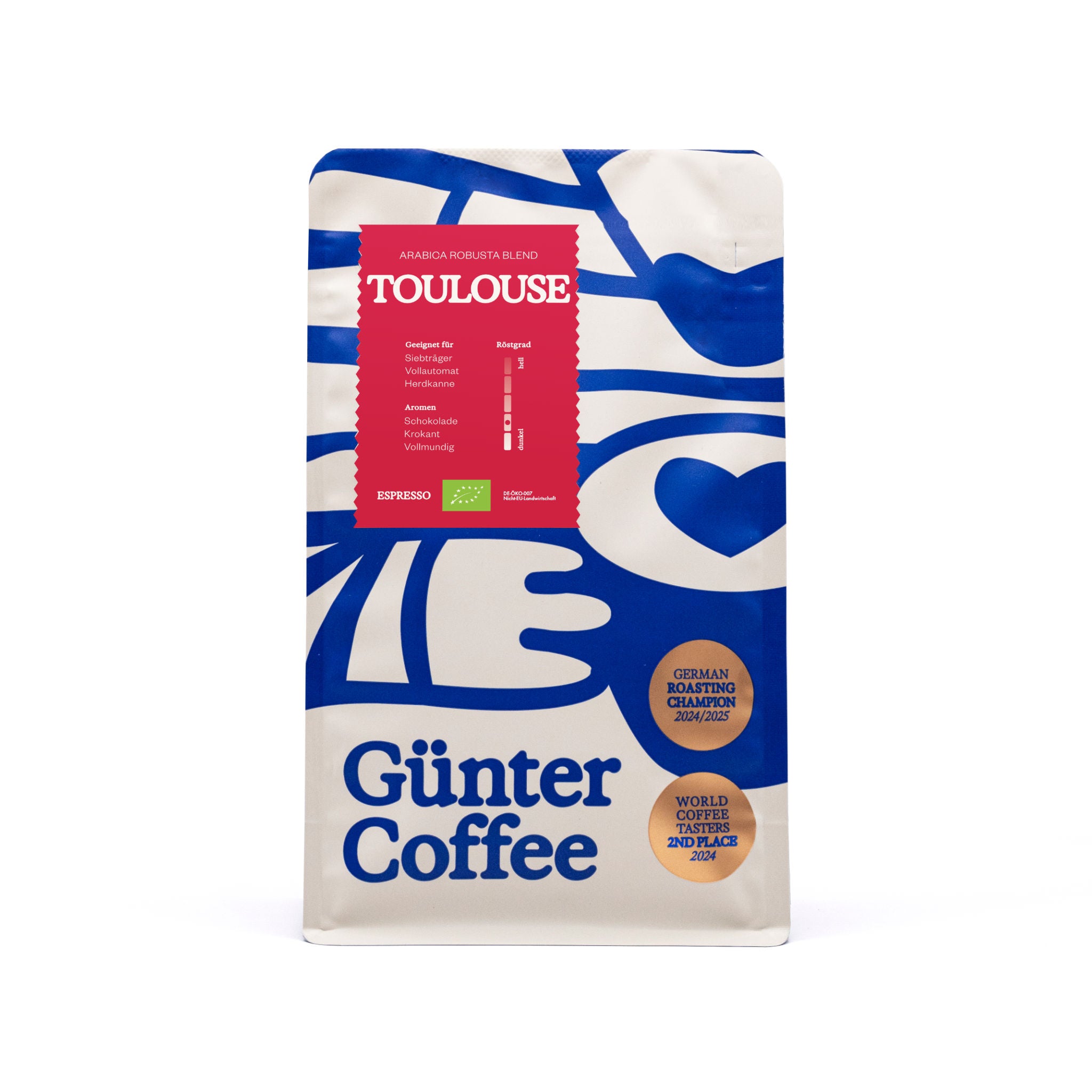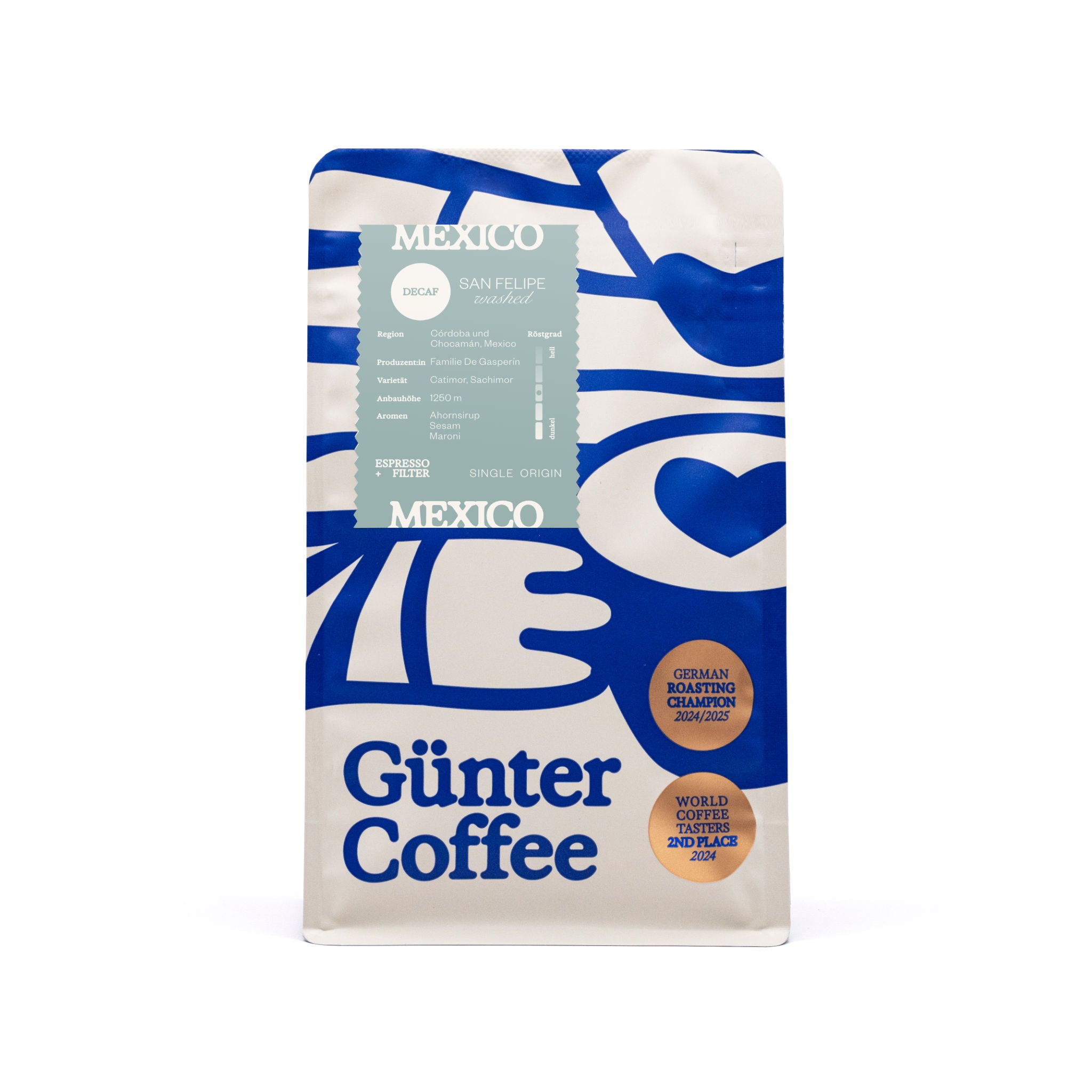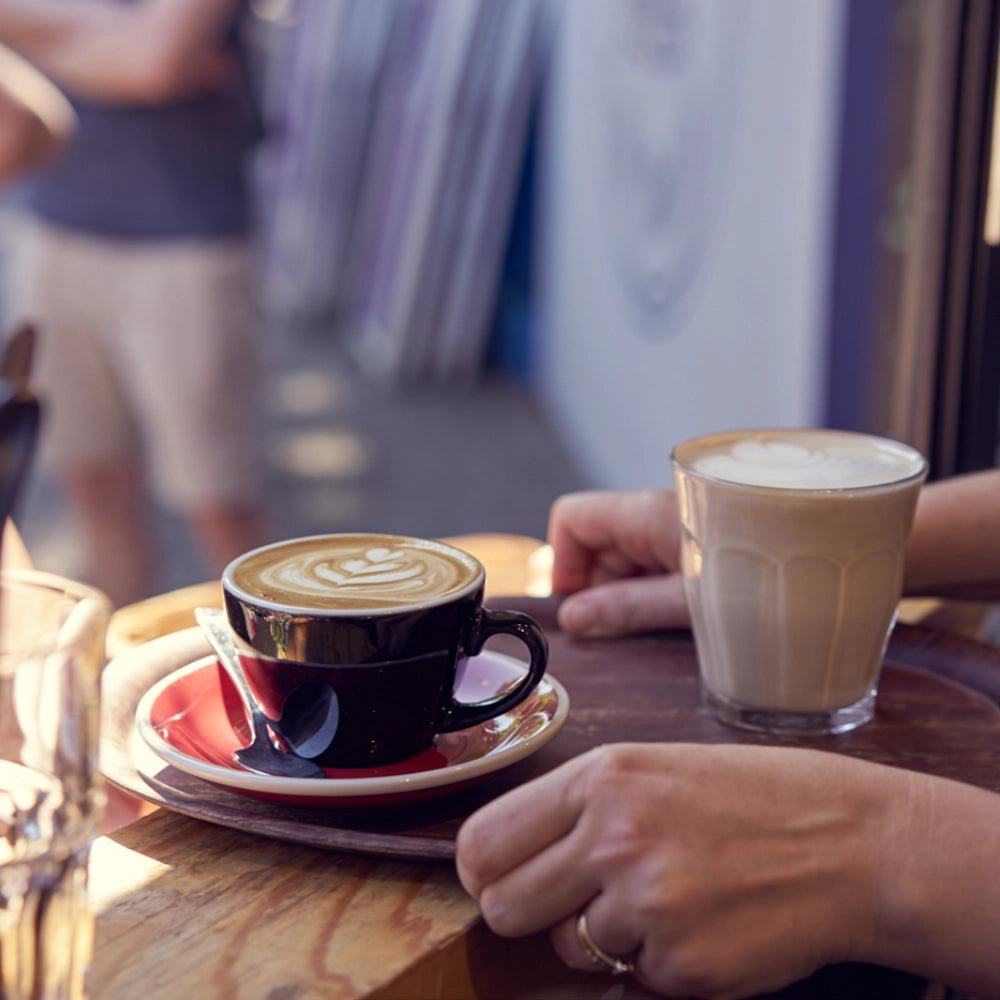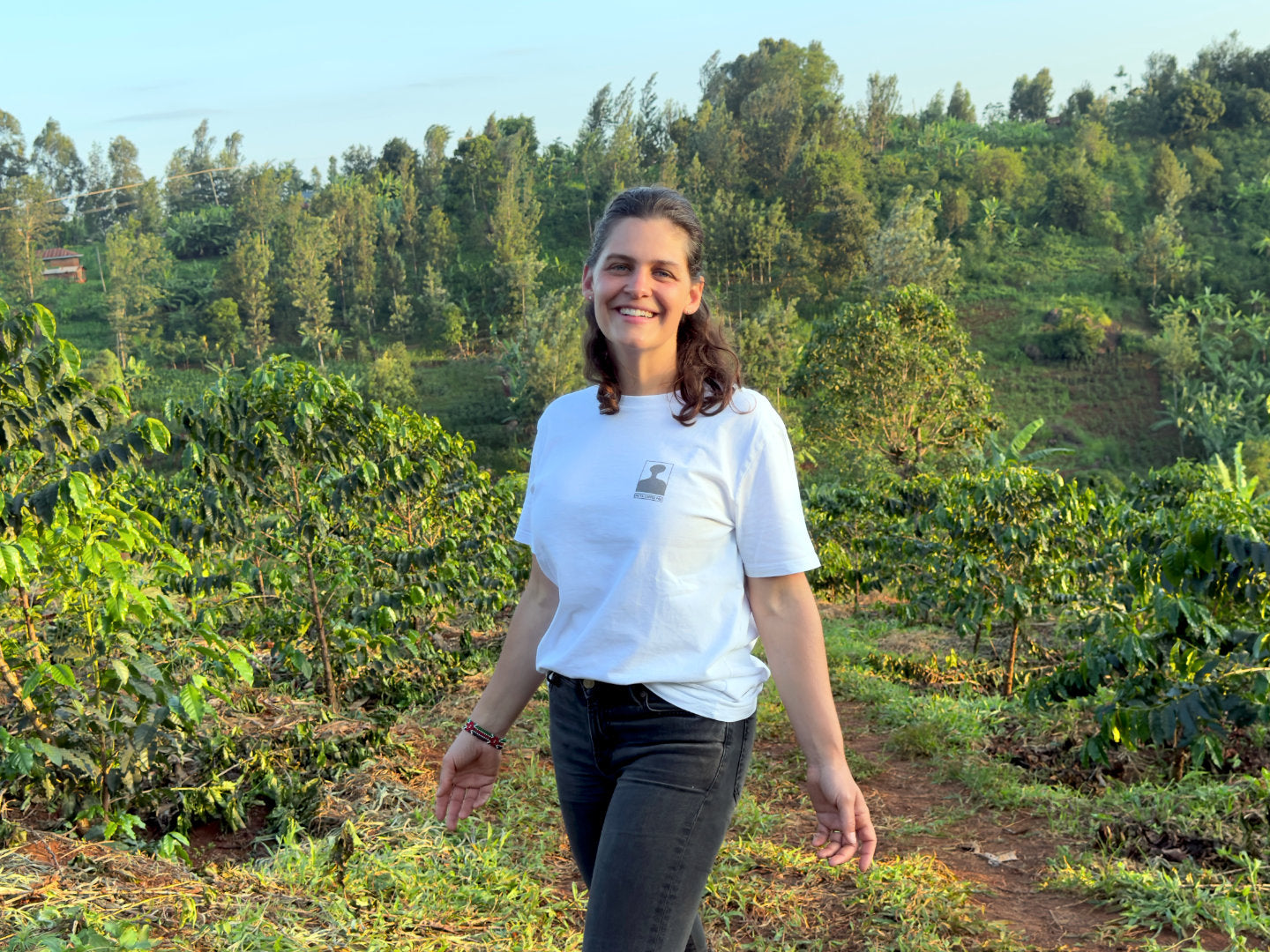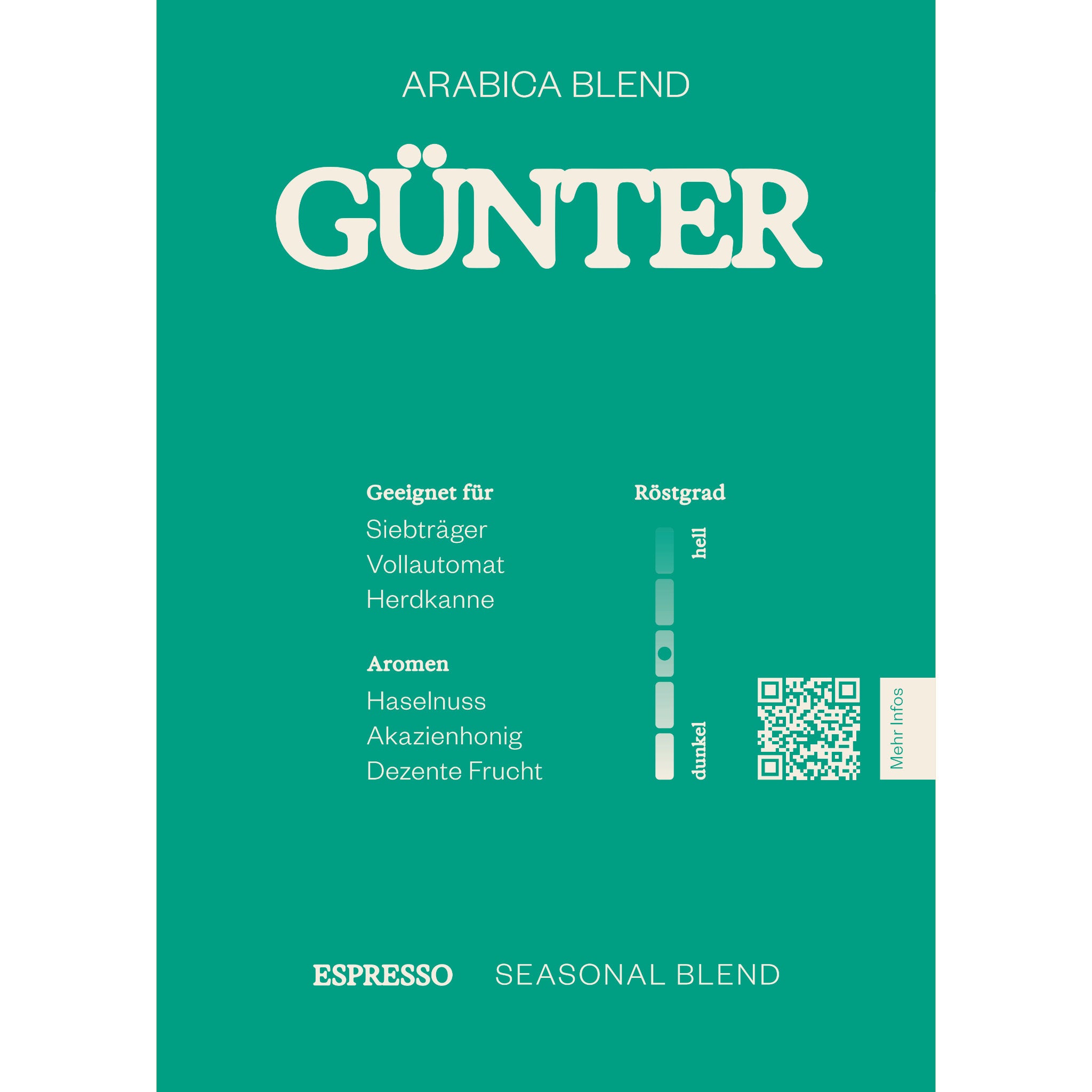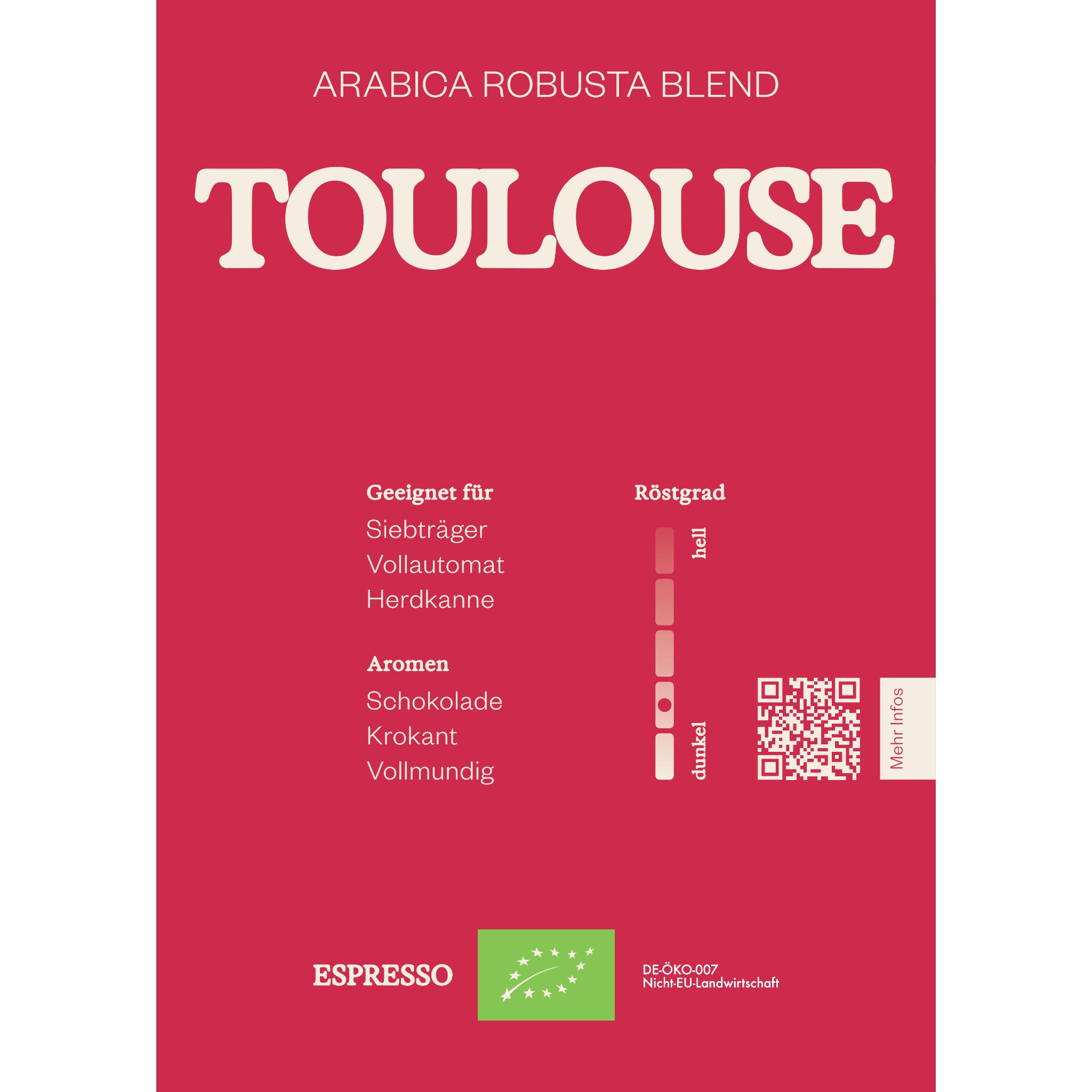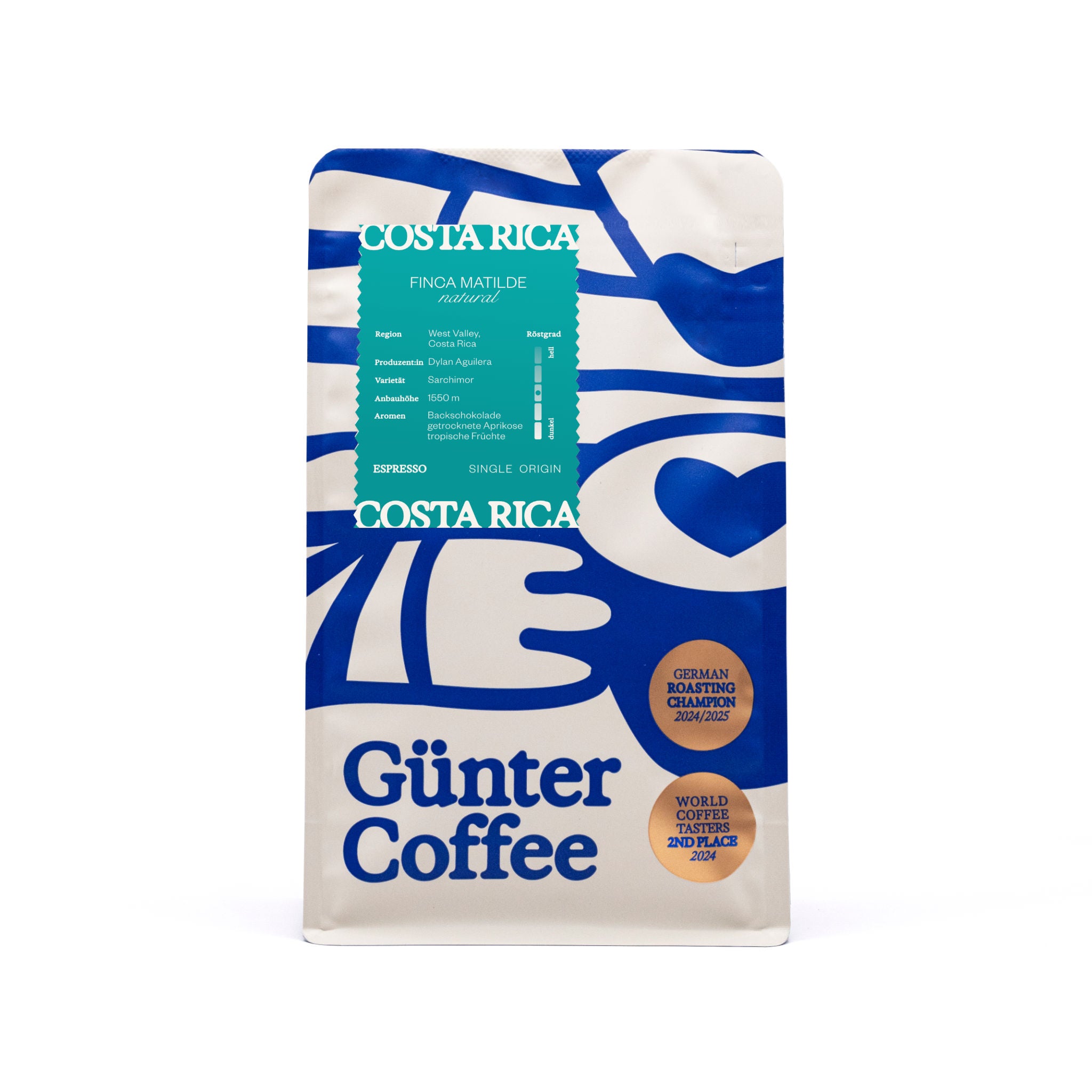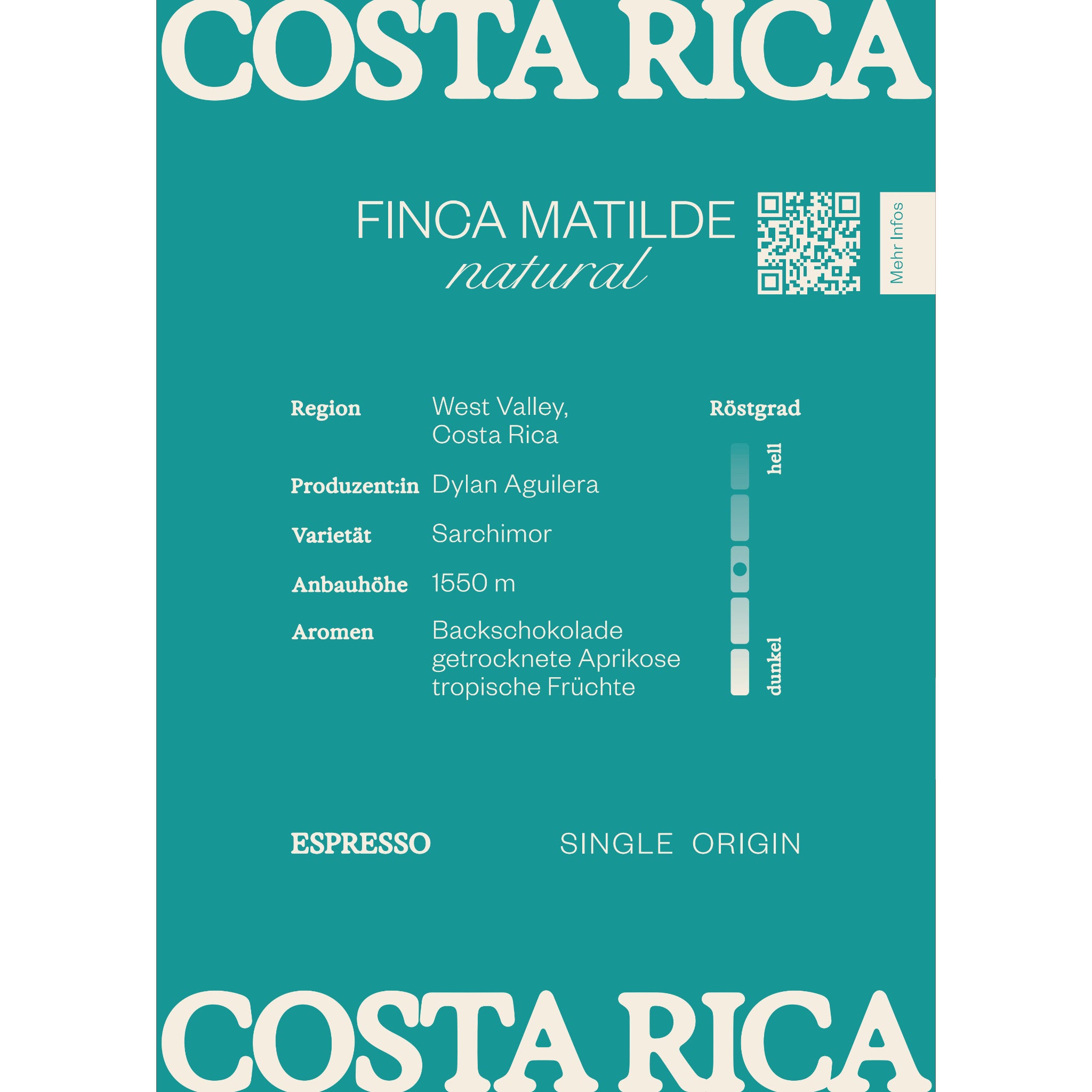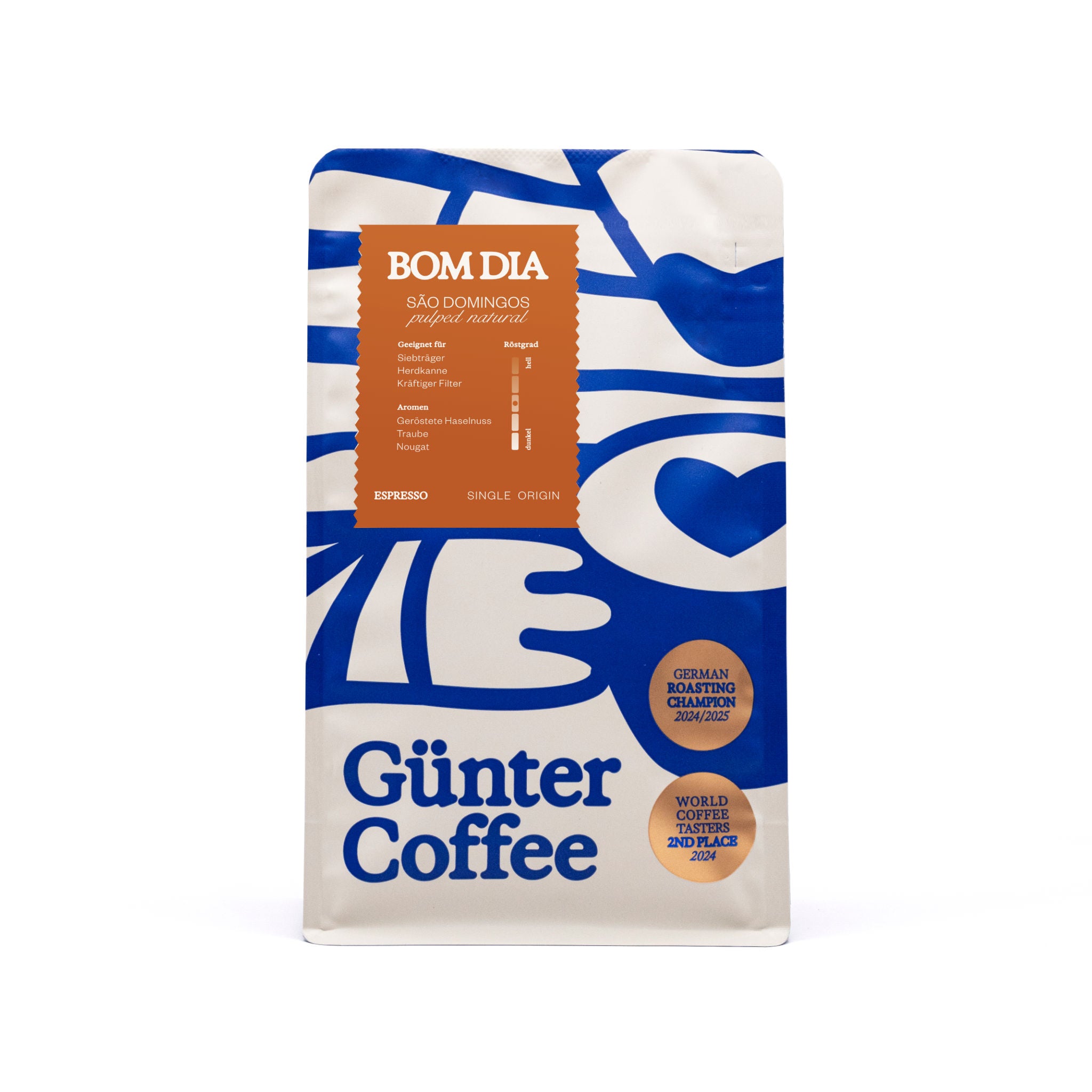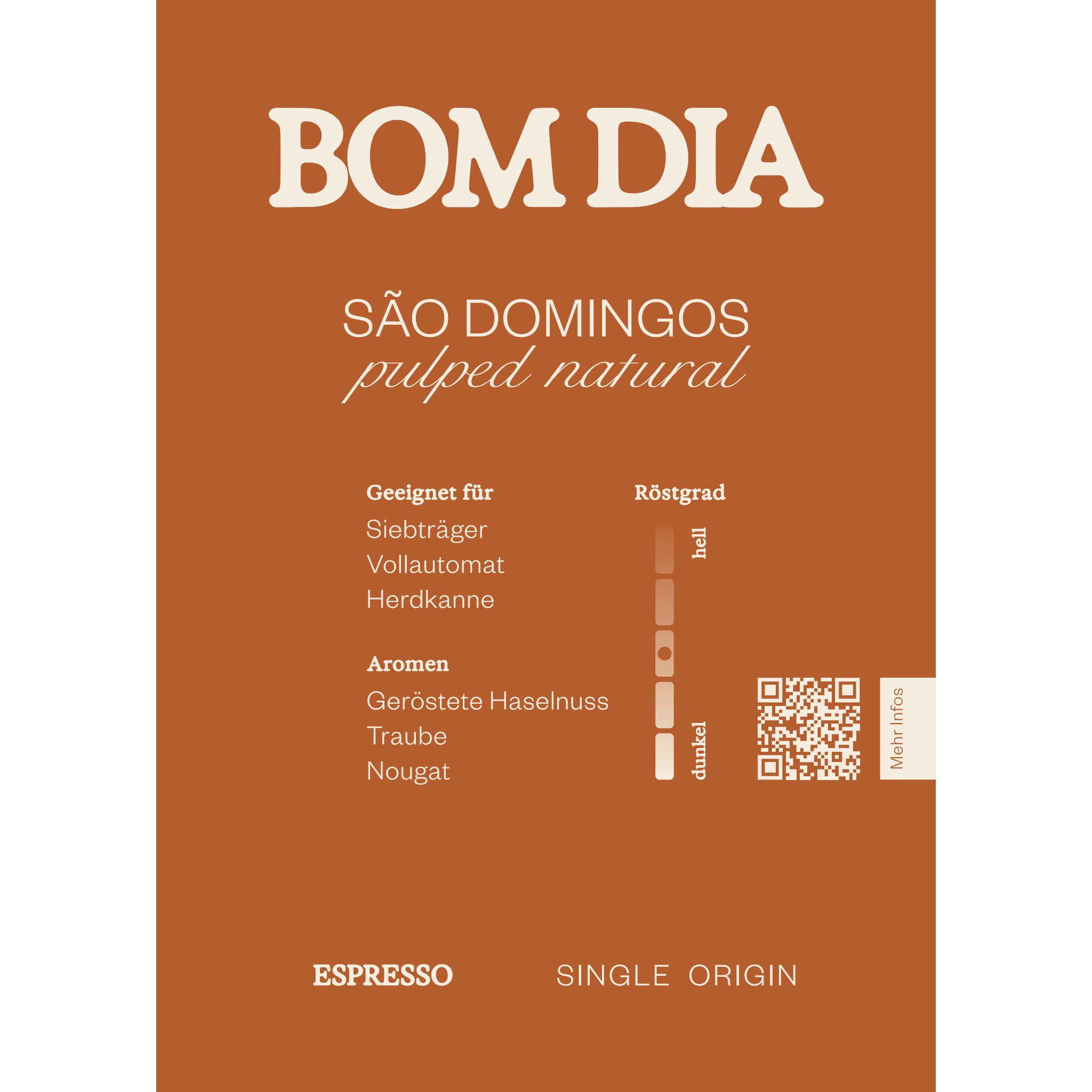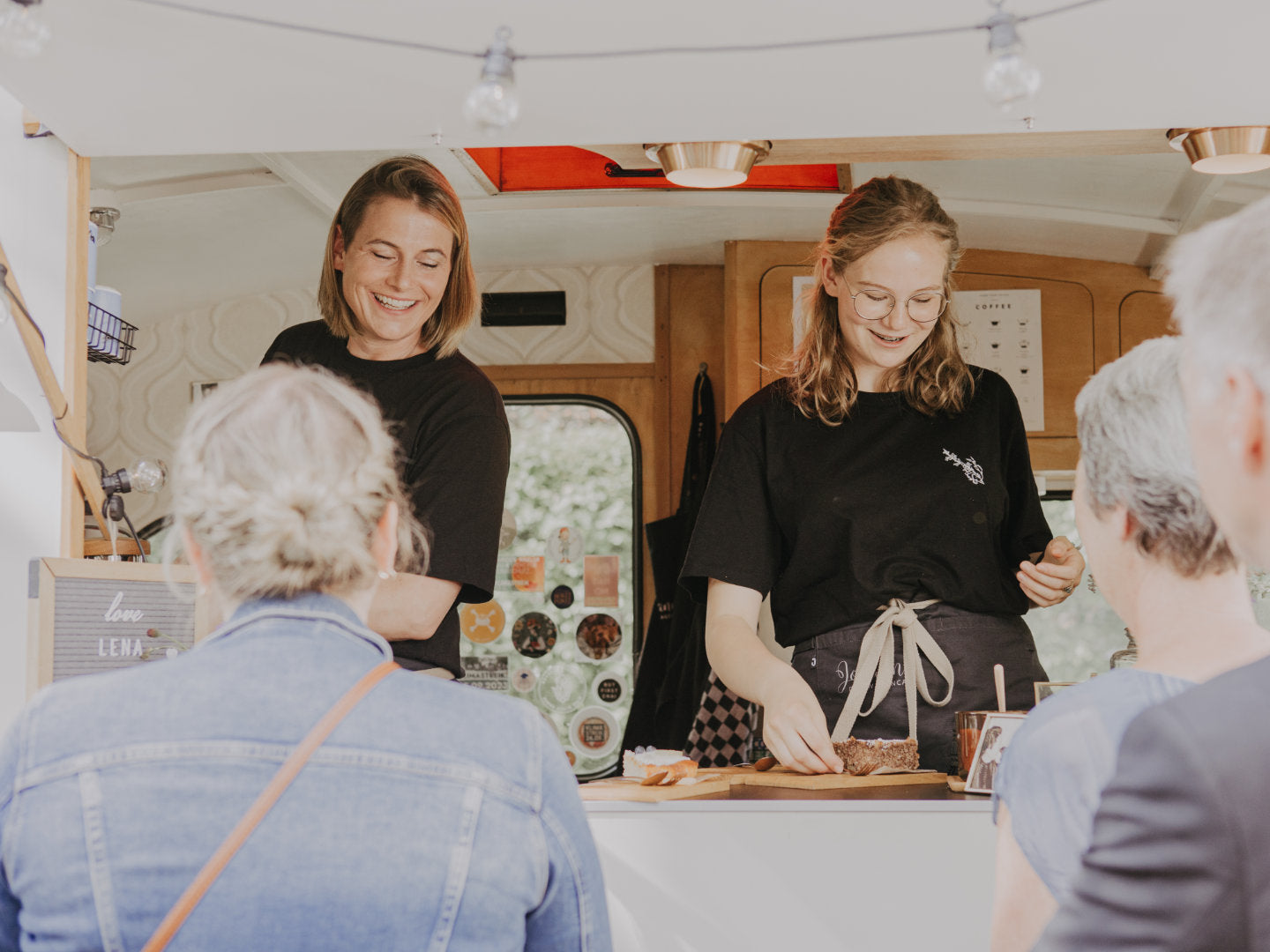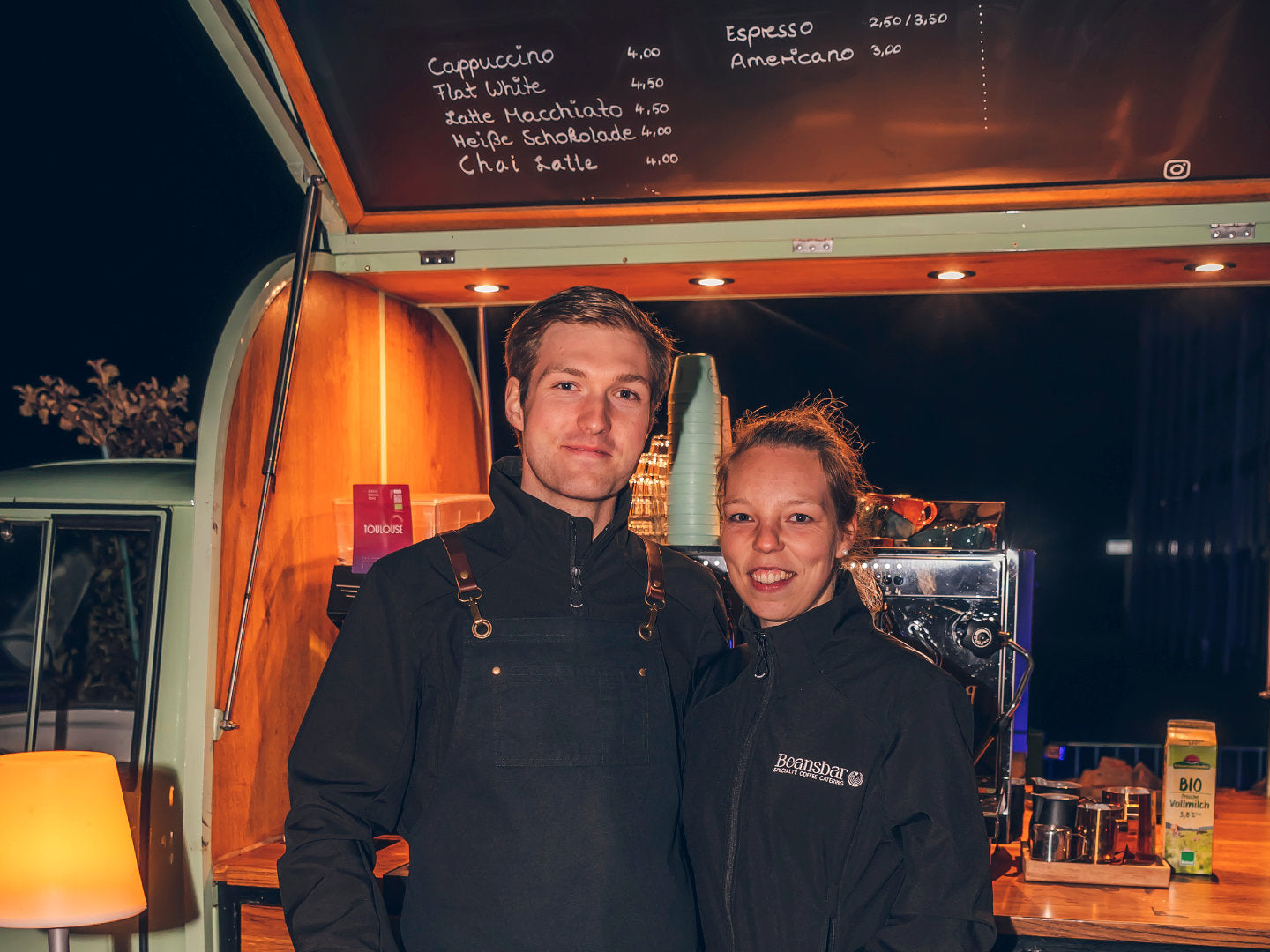Nadine Ngari worked in advertising for a long time before deciding to try her hand at the coffee business in 2017. In the same year, she imported 1.2 tons of green coffee from Alfred Wasikye and his company Chanzo Coffee in Uganda. Alfred is her husband's cousin and grows coffee with his team in the region around Mount Elgon. She sells some of it and roasts some of it herself, with the help of a roaster friend. "I took the roasted coffee to Nienstedten on an christmas market and sold packages; that was the test for The Coffee Board." The idea took off and two years later she founded her company, with which she wanted to cover everything from the farm to the cup from a single source. Nadine is ambitious and full of drive, you can tell right away.

Nadine Ngari and Alfred Wasikye inspect fresh coffee cherries (left), and Nadine works with naturally processed cherries on coffee drying beds (right).
Roasting is not everything
A lot has happened since The Coffee Board was founded—Nadine and her family now run their own coffee farm in Kenya, where coffee bushes have been grown on 3 hectares of land since 2020. She also roasts and prepares coffee with her team at various weekly markets in Hamburg, Germany, and imports green coffee from other East African countries as well: Apart from Uganda and Kenya, she also has beans from Burundi, where her sister-in-law is from, and Rwanda, where her mother-in-law is networked.
Nadine's goals are clear: "I want to make coffee from East Africa better known and bring transparency to the value chain for my customers." On the property in Kenya, she also runs an orphanage together with her husband, her mother-in-law and a small team, which is supported by the association Orphan's Hope & Life e. V., which was founded by her father-in-law Dr. Peter John Ngari in 2007. He was the first Kenyan surgeon in Germany. The project offers a home to over 25 children and is financed through membership fees, donations and sponsorships.

Children and young people with the home mother from Orphan's Hope & Life e. V. in Kenya.
Spotlight: Nadine's own coffee farm in Kenya
We want to know more about Nadine's farm in Kenya. What does it look like there, how many coffee trees are planted, why have an own farm at all? "On our farm in Kenya we have a total of 5 people as permanent staff. During harvest time there are significantly more people bustling around the farm due to the workload. The work on the farm is divided into different parts, each employee has their own area. When someone is done with t heir part, they help out the others. There are around 3,500 coffee bushes on our 3 hectares of land," says Nadine. The harvest takes place twice a year, "a small harvest in May and June and the main harvest in September. Everything is done by hand, only the water pump is electric," she continues.
The varieties on farms in Kenya are severely limited by government regulations. On Nadine's farm, the typical SL 28 variety is grown between banana and mango trees. She wants the coffee cultivation and operation to be as sustainable as possible, which means: "The farm should function completely independently, while human, animal and plant resources are used as sparingly as possible. Our employees receive a fixed salary and bonuses as well as a long-term perspective, the oxen are not be overworked, we produce our own fertilizer and water is used sparingly. It comes from the river that flows over our property." In the long term, Nadine wants to create a rainwater reservoir with a tank on her farm, "but," she says, "that is very complex and cannot be planned, financed and implemented overnight. Sustainable work is a process."

Nadine collects mulch material on her coffee farm in Kenya.
In order for her sustainable farm project to bear fruit, she also needs relationships with other roasters that she can rely on. This requires long-term cooperation and clear communication. "I also ask my business partners to be patient. When working with many smaller producers, the relationship structures are complex and delays are a constant occurrence. That's part of the process if the focus is on quality and fairness," she explains.
In 2023, Nadine's team already harvested 7.5 tons of coffee, which was sold to a cooperative. "Now all I need is my residence permit so that I can export directly. My husband has Kenyan citizenship, so our children are also entitled to it. Until I get that, I still have to endure the bureaucracy," she explains.
Co-Roasting in Hamburg as next project
In Hamburg, she wants to strengthen the roasting community in addition to the roastery and the weekly markets and to do so, she wants to create a "co-roasting" space, such as the one offered by Communal Coffee in Berlin, Germany. Over 10 producers roast, pack and cup their beans there. "The coffee world in Hamburg is very segmented and every roastery does its own thing, even though there are a lot of roasters. I want to bring people together. Baristas, for example, are very well connected and often support each other in competitions. But where are the roasters? I want to create a place where people can meet and exchange ideas."
We thank Nadine very much for her time and the interview, wish her much success with the co-roasting project and are already looking forward to new beans from Uganda or another East African country.
